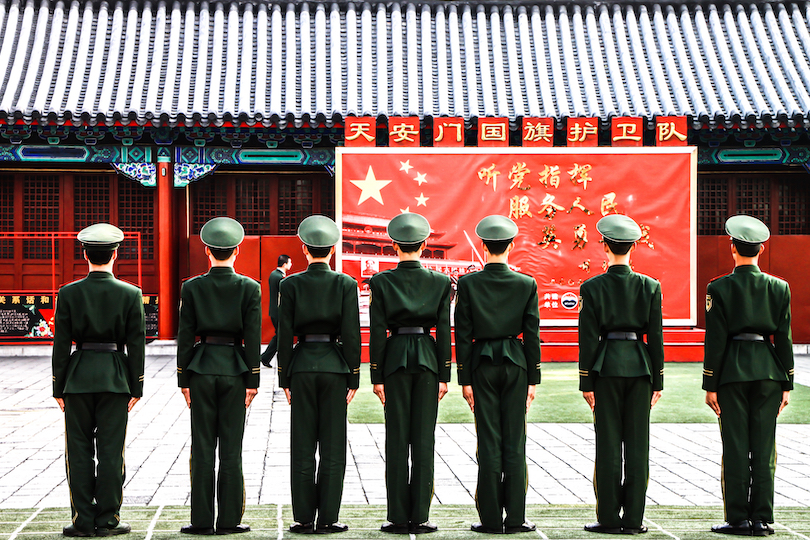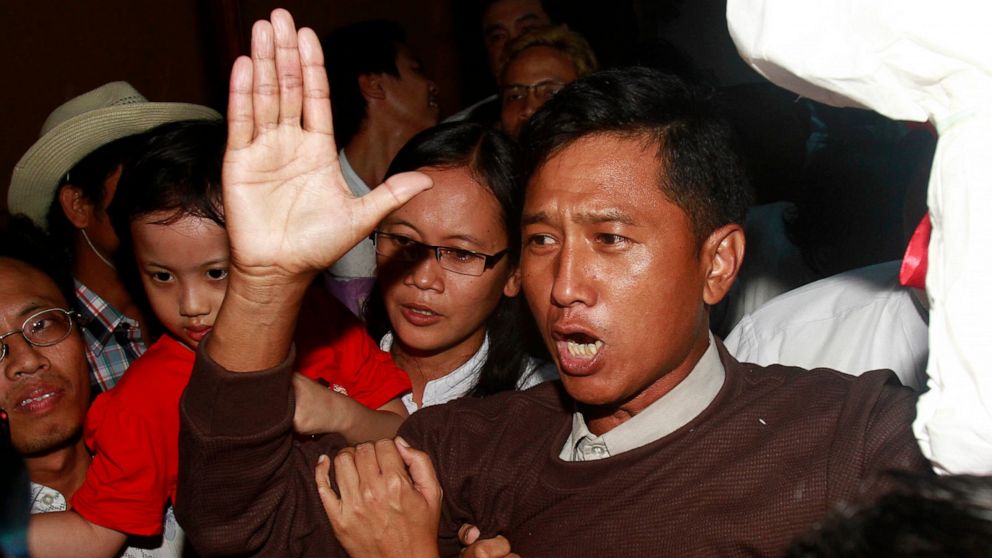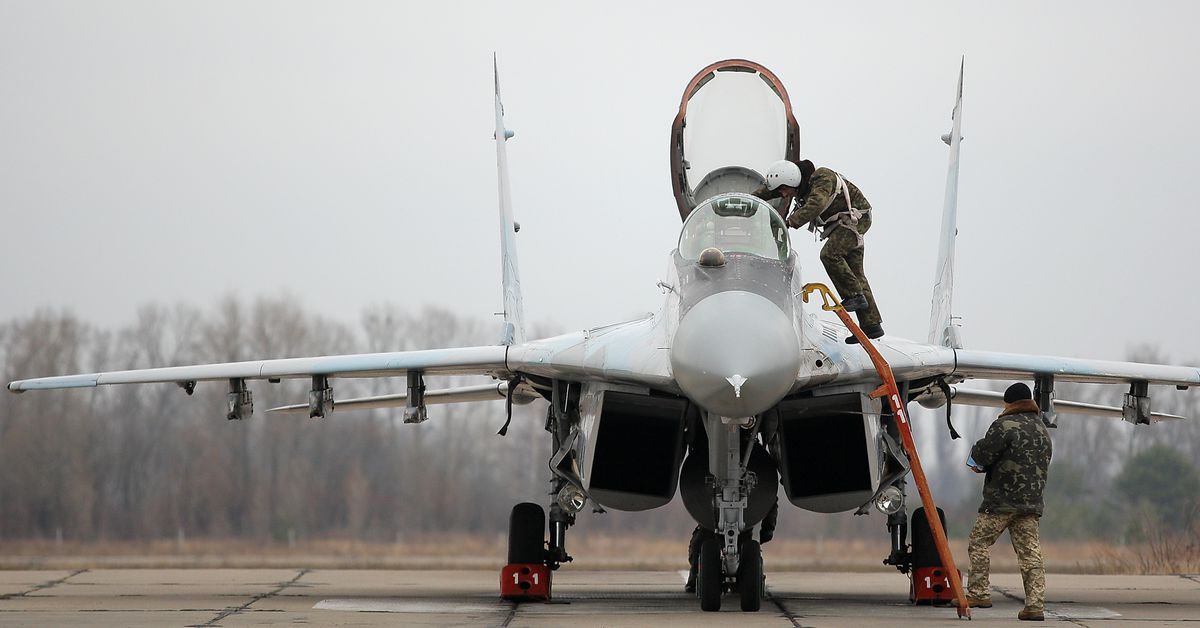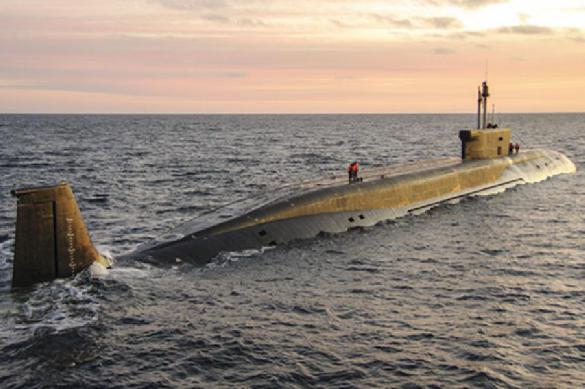[ad_1]
There’s growing anxiousness within the West about China’s rising assertiveness on the worldwide stage. This anxiousness is obvious within the insurance policies of western states. The USA has described China as ‘a sustained problem’ to the worldwide system (The White Home, 2021 p.8). In the meantime, the UK is investing in its ‘China-facing capabilities’ and Australia is buying nuclear submarines to hedge towards China’s presence within the South China Sea (HM Authorities, 2021 p.22; Masterson, 2021). Undoubtedly, China’s rise poses a problem to the established order. If for no different motive than that it represents a substitute for the western-centric worldwide system (Turin, 2010). However, representing a substitute for the established order doesn’t imply that Chinese language international coverage is inherently motivated by difficult the West.
Such anxious views of Chinese language international coverage are rooted in realism, a principle of worldwide relations which assumes actors to be inherently self-interested and motivated by the egoistic pursuit of energy (Waltz 2001; Mearshimer 2003). In accordance with this ontology, the potential energy to be gained by performing assertively is sufficient to account for China’s international coverage motivations. Social constructivism, however, posits that an actor’s motivations are rooted within the social interactions between teams inside the state (Leira, 2019). Utilizing this lens, China’s international coverage motivations should be understood in relation to its home politics. Adopting a socially constructivist ontology, this text argues that Chinese language international coverage is motivated, a minimum of partly, by home nationalist pressures and that, by the use of the safety paradox, western insurance policies are fuelling Chinese language assertiveness.
This text proceeds as follows. Firstly, by presenting the Chinese language Communist Get together’s (CCP’s) twin-pillar mannequin of legitimacy and its elevated reliance on nationalism to take care of its regime’s legitimacy. It then outlines China’s nationalist motion and its international coverage agenda, utilizing the 2010 Senkaku/Diaoyu dispute to point out how nationalist stress impacts the CCP’s international coverage decision-making. Consideration is then given to the CCP’s social controls, displaying that the CCP is unable to mitigate nationalist stress by way of its propaganda infrastructure. The ultimate part then presents the safety paradox idea and the way the West’s realist assumptions and anxious insurance policies are fuelling Chinese language assertiveness.
Pillars of Legitimacy
After Mao’s dying, the CCP may now not depend upon a cult of character to offer fashionable help for its regime (Coble, 2007). Relatively, the CCP has since premised its regime legitimacy ‘upon the dual pillars of nationalism and financial prosperity (Reilly, 2004 p.283). This mannequin of legitimacy predicates the CCP’s regime safety upon its means to enhance the financial situations of the Chinese language folks and its means to guard and pursue China’s nationwide pursuits.
Definitely, the CCP has carefully related itself with China’s financial success and nationwide pursuits. The CCP-owned Folks’s Each day, for instance, usually praises the CCP for fostering China’s ‘thriving and various economic system’ (Cai, 2021). It goes so far as to reward particular CCP financial insurance policies such because the 13th 5 Yr Plan, which is credited with rising China’s digital economic system by 16.6% from 2016-20 (Folks’s Each day On-line, 2021a). Additionally revealed have been calls to help the CCP in defending nationwide pursuits from international intervention. For instance, by buying Xinjiang Cotton towards the backdrop of worldwide condemnation of China’s remedy of Xinjiang’s Uighur inhabitants (Folks’s Each day On-line, 2021b).
Notably, Chinese language president Xi Jinping invoked each pillars when talking on the CCP’s 100th-anniversary celebrations. Stating that ‘solely socialism with Chinese language traits can develop China’ (BBC Information, 2021) On this assertion, the CCP and its particular model of socialist ideology are offered as important to China’s financial improvement. In the meantime, Xi additionally made an overtly nationalistic pledge that the CCP will:
by no means permit anybody to bully, oppress or subjugate China. Anybody who tries to do this can have their heads bashed bloody towards the Nice Wall of Metal cast by over 1.4 billion Chinese language folks (Xi by way of BBC Information, 2021).
Evidently, the CCP is raring to affiliate itself with financial improvement and defending the Chinese language nation. Doing so in accordance with the dual pillar mannequin to take care of its regime legitimacy.
Nonetheless, an rising concern with the dual pillar mannequin is that the CCP more and more struggles to make sure financial prosperity. Central to the financial pillar are Deng Xiaoping’s liberal financial reforms. Since their introduction within the early Eighties, per capita revenue has elevated by 2500% and over 800 million Chinese language have been saved from poverty, conferring fashionable help for the CCP’s financial stewardship (Denmark, 2018). But, structural financial challenges together with a declining labour pressure, low per-capita productiveness, and an over-reliance on manufacturing end in limitations to sustained progress (World Financial institution, n.d.). Consequentially, 373 million Chinese language proceed residing in some extent of relative poverty (Ibid.).
As financial prosperity turns into tougher to ensure, the integrity of the financial pillar is weakened. This is a matter of which the CCP is conscious. China’s progress price in 2018 was 6.6% (Kuo, 2019), considerably under each China’s highs of over 10% progress within the 2000s, and the required price wanted to take care of excessive ranges of employment (World Financial institution, n.d.). This led to issues amongst CCP officers that rising unemployment would possibly result in social unrest (Kuo, 2019). This included Premier Li Keqiang, who publicly acknowledged ‘public dissatisfaction’ over China’s stagnating financial efficiency (Bradsher and Buckley, 2019).
Given the financial pillar’s weak point, the CCP should rely extra upon the nationalist pillar to hold the burden of its regime legitimacy. Therefore, the CCP has been much less more likely to constrain fashionable expressions of nationalist lately (Abbott, 2016). In 2005, tens-of-thousands of Chinese language nationalists protested Japanese textbooks for his or her omission of atrocities dedicated towards China through the Second Sino-Japanese Warfare (Watts, 2005). Protesters attacked Japanese companies and property, together with Japan’s embassies and consulates (Yardley, 2005). Some native CCP branches and low-level officers inspired the demonstrations, however the central CCP discouraged the nationalist demonstrations (Watts, 2005). These efforts included deploying riot police, shutting down public transport and the Minister of Public Safety declaring the protests unlawful and citing concern for Sino-Japanese relations as the explanation for this crackdown (Yardley, 2005).
In stark distinction, the CCP did comparatively little to cease anti-Japanese protests in 2012. This time, nationalists in over 180 Chinese language cities gathered within the tens-of-thousands to protest Japan’s nationalisation of the Senkaku/Diaoyu Islands (Gries et al., 2016), an island chain within the East China Sea claimed by China however administered by Japan. Notably, senior CCP officers did not touch upon the protests whereas the dispute was ongoing (Buckley, 2012). Tensions in Sino-Japanese relations have been larger in 2012 in comparison with 2005 (Gries et al., 2016), which means it’s difficult to isolate China’s financial efficiency as a variable accounting for the distinction within the CCP’s response. Nonetheless, it’s notable that China’s financial progress price slowed by roughly one-third from 11.39% in 2005 to 7.86% in 2012 (World Financial institution, n.d.). Accordingly, as per the twin-pillar mannequin, the CCP’s reluctance to constrain the nationalistic anti-Japanese protests was to be anticipated, any anti-protest measures risking the nationalist credentials upon which the CCP more and more relied because the financial pillar faltered.
Chinese language Nationalism and the CCP’s International Coverage
The CCP’s reliance on the nationalist pillar confers appreciable affect upon China’s nationalist motion. This in flip requires the CCP to acquiesce to the nationalist agenda in its international coverage to take care of its legitimating nationalist credentials. Chinese language nationalism is just not a unified motion however consists of teams and organisations sharing a typical Chinese language nationalism delicate to what it considers affronts to the Chinese language nation and vocal in its activism towards stated affronts (Reilly, 2004; Coble, 2007; Johnston, 2017). A few of these teams and organisations have formal hyperlinks with the CCP, for instance, the Communist Youth League and nationalists working in native CCP branches (Watts, 2005; Kecheng, 2020). Others function extra independently of the CCP, equivalent to nationalists among the many Chinese language diaspora and most of China’s on-line activist teams (Modongal, 2016; Fang and Repnikova, 2018).
These teams subscribe to a broad nationalist agenda and anticipate the CCP to make use of China’s rising financial and navy energy to pursue China’s pursuits (Abbott, 2016). Particularly, they demand justice for historic repression, recognition of China commensurate with its newfound energy, that the CCP mobilise towards threats to Chinese language sovereignty, and that China’s sphere of affect be revered (Boylan et al., 2020). This agenda was evident within the current US-China commerce struggle. Nationalists referred to as for sanctions in response to what they perceived as a US try and reject China’s standing as a number one world economic system, evaluating US tariffs to the repressive financial restrictions imposed upon China by western imperialists within the 1800s (Ibid.).
Understanding the nationalist agenda and the CCP’s reliance on the nationalist pillar for regime legitimacy is critical. It is because the CCP should adhere to the nationalist agenda in its international coverage to dwell as much as its nationalist credentials (Coble, 2007). That is obvious in how, towards the backdrop of China’s slowing economic system, nationalist stress has coincided with a hard-line stance from the CCP in China’s international relations. An instance of this may be discovered as early because the 2010 Senkaku/Diaoyu dispute (often known as the Trawler Incident). This dispute started after a Chinese language fishing trawler collided with two Japanese coastguard vessels within the territorial waters of the Senkaku/Diaoyu Islands, after which Japan arrested the trawler’s crew. Initially the CCP responded comparatively benignly, restricted to International Ministry Spokeswoman Jiang Yu issuing a press release requesting that Japan ‘chorus from so-called law-enforcement actions within the East China Sea’ (Johnson 2010).
Nonetheless, nationalistic anti-Japanese protests started within the days following the incident. The protesters referred to as upon the CCP to take additional motion towards Japan. One protester exterior the Japanese embassy defined: ‘I need our authorities to be stronger. They shouldn’t let the Japanese bully us on our personal soil!’ (Lim, 2010). In the meantime, a protester in Shanghai summarised the protests as follows: ‘We got here right here to enchantment for equity and for the best to ask for our captain again. We remorse the federal government’s weak point in diplomacy’ (Al Jazeera, 2010a).
Evidently, the China nationalist motion, in response to a perceived affront within the type of the trawler incident, sought to stress the CCP into resolving the dispute in accordance with the nationalist agenda. The day after the protests began, and in addition solely a day after their preliminary assertion, Spokeswoman Jiang introduced naval deployments to the East China Sea. This demarcated the primary occasion of standard Chinese language patrols within the area because the normalisation of Sino-Japanese relations within the Nineteen Seventies (Inexperienced et al., 2017). Within the following weeks, because the nationalistic anti-Japanese protests continued, China additionally suspended diplomatic contacts with Japan and ceased uncommon earth exports important to Japanese manufacturing (Hafeez, 2015). Chinese language Premier Wen Jiabao additionally threatened Japan with retaliation whereas in New York for a UN convention (Al Jazeera, 2010b).
The truth that the CCP pivoted from a diplomatic response to naval deployments inside at some point, and that this pivot coincided with nationalist stress upon the CCP, exhibits nationalism’s have an effect on upon Chinese language international coverage in motion. The speedy change in response to Japan ensuing from the CCP eager to uphold its nationalist credentials whatever the implications for Sino-Japanese relations.
In fact, it’s believable that the CCP merely desired to take a powerful stance towards Japan and that anti-Japanese sentiment merely provided the pretext for the CCP to flex its newfound navy energy. Taffer (2020), for instance, presents the trawler incident as an try by the CCP to check the USA’s dedication to its Japanese ally. Nonetheless, the CCP made efforts to restore Sino-Japanese relations after the flashpoint of the dispute handed. These included the resumption of uncommon earth exports and delicate discouragement of anti-Japanese protests as soon as nationalist stress subsided within the following months (Inexperienced et al., 2017). This means that the CCP didn’t wish to harm Sino-Japanese relations, however fairly that nationalist stress pressured the CCP to behave in accordance with the nationalist agenda. Thereby safeguarding its nationalist credentials as per its growing reliance upon the nationalist pillar to safe its regime legitimacy.
The Limits of the CCP’s Management
Reilly (2011) argues that the CCP practices efficient social management over its nationalist motion by leveraging China’s propaganda infrastructure to direct and disperse nationalist sentiment as wanted. If true, this could imply that the CCP faces no stress to stick to the nationalist agenda. It may merely adapt its propaganda messaging to counter nationalist stress with out appeasing the nationalist agenda in its international coverage decision-making.
But, the CCP has failed to limit nationalist activism towards international actors, illustrating the boundaries of the CCP’s management over China’s nationalist motion. For instance, in 2020, towards the backdrop of worldwide condemnation of occasions in Hong Kong, the CCP struggled to crackdown on a nationalist anti-foreign smear marketing campaign on social media (Lo, 2020). Notably, the Communist Youth League, a nationalistic youth motion affiliated with the CCP, provocatively endorsed a ‘social media campaign’ towards international governments sympathetic in the direction of Hong Kong (Kecheng, 2020). This exhibits that the CCP struggles to exert social management over nationalist organisations it has formal hyperlinks with, not to mention the broader Chinese language nationalist motion.
The constraints of the CCP’s crackdown on the nationalist social media marketing campaign, and thus limitations of the CCP’s social controls over China’s nationalist motion, have been most distinguished in Might 2020. Chinese language nationalist hacktivists hijacked the Twitter account of the Chinese language embassy in Paris, posting an image depicting the USA because the personification of dying, trailing blood alongside a hall and knocking at Hong Kong’s door with the caption ‘who’s subsequent?’ (Lo, 2020). That is important for 2 causes. Firstly, the response from the Chinese language embassy was to quickly delete the publish and issued formal apologies to France and the USA (Keyser, 2020). These actions are inconsistent with a CCP really motivated to say China’s nationwide pursuits to the detriment of its international relations, however in step with a CCP struggling to regulate China’s nationalist motion.
Secondly, and most significantly, this instance exhibits Chinese language nationalists to be hijacking the CCP’s propaganda infrastructure to pursue their international coverage agenda. This factors to a actuality during which, fairly than the CCP having social management of China’s nationalist motion via its propaganda infrastructure, Chinese language nationalists discover methods to flee the CCP’s social controls. It additionally exhibits that they’re keen to reply independently of the CCP to perceived affronts to the Chinese language nation in the event that they really feel the CCP fails to take action adequately.
Given the restrictions of the CCP’s social controls, the CCP can not merely adapt its propaganda messaging to offset nationalist stress. Relatively, it should cope with the dilemma of both acquiescing to the nationalist agenda, even to the detriment of China’s international relations, or risking its nationalist credentials and thus regime legitimacy. This demonstrates that home nationalist pressures are a big think about China’s international coverage decision-making regardless of the CCP’s propaganda infrastructure.
Why Does it Matter?
Understanding the nationalist pressures on the CCP’s international coverage decision-making is essential for 2 causes. Firstly, from an educational standpoint, it serves as a case research in working previous preliminary assumptions about an actor’s motivations. Whereas western policymakers anxiously assume China’s motivations in accordance with realism, this text has offered an alternate clarification. By taking a look at an actor’s international coverage as a product of its home politics, it’s potential to offer a extra significant clarification of their international coverage motivations. On this case, that China is motivated, a minimum of partly, by the CCP’s need to uphold its legitimating nationalist credentials within the face of stress to stick to the international coverage agenda of its nationalist motion.
Secondly, when it comes to the practise of worldwide relations, it exhibits how the realist assumptions of western policymakers and their respective China insurance policies danger changing into self-fulfilling prophecies. That is in accordance with the safety paradox idea. Also called the safety dilemma, the safety paradox refers to a cycle during which two sides, via their efforts to mitigate their very own uncertainty and insecurity, set off uncertainty and insecurity within the different (Sales space and Wheeler, 2007). As this cycle progresses tensions might escalate to the purpose that battle emerges regardless of, paradoxically, neither aspect essentially holding any ill-will in the direction of the opposite at first of the paradox (Ibid.). An instance of a safety paradox is the Anglo-German naval arms race through the prelude to World Warfare I. On this, Germany’s maritime ambitions induced Britain to develop its navy, in flip lea ding Germany to speed up its naval programme and thus Britain to develop bigger battleships, and so forth (Maurer, 1997).
An analogous mechanic may be noticed in the present day concerning the West and its insurance policies in the direction of China. Western states, anxious about China’s rise and rising assertiveness, are enacting insurance policies in preparation of a Chinese language problem to the established order. Buying nuclear submarines and investing in ‘China-facing capabilities’. Whereas comprehensible given their anxiousness and realist assumptions, these insurance policies danger scary Chinese language nationalists. Thereby producing stress on the CCP to enact the assertive international coverage the West desires to keep away from. Possible resulting in additional western insurance policies that danger being interpreted as an affront by Chinese language nationalists. If unchecked, this might result in hostility regardless of each the West and the CCP merely making an attempt to mitigate their very own insecurities.
That western insurance policies are scary Chinese language nationalists is obvious to see. Minister Yang Xiaoguang of the Chinese language embassy in London has defined that the Chinese language folks have expressed ‘antipathy and opposition’ to the UK’s plans to China coverage (Embassy of the Folks’s Republic of China in the UK of Nice Britain and Northern Eire, 2021). This means home nationalist stress on the CCP to reply to the UK’s coverage. Equally, in response to American posturing and Australia’s acquisition of nuclear submarines, Chinese language nationalists briefly started requires the CCP to declare struggle on AUKUS (Davidson and Blair, 2021). These examples each spotlight how, in response to western coverage, China’s nationalist motion is pressuring the CCP to stick to its international coverage agenda. In doing so, making the case that the West is, by the use of its China insurance policies, creating the assertive China that fuels their very own anxieties.
Conclusion
Evidently, China’s international coverage motivations are influenced by home nationalist pressures and western coverage. That is obvious contemplating the twin-pillar mannequin. As financial prosperity has develop into tougher for the CCP to ensure, it has needed to more and more depend upon nationalism for legitimacy. This confers appreciable affect upon China’s nationalist motion. China’s nationalist motion subscribes to a broad nationalist agenda, which it desires the CCP to stick to in its international coverage decision-making. This has affected China’s international coverage in practise, obvious as early as 2010 when the CCP rapidly pivoted to align extra carefully to the nationalist agenda through the 2010 Senkaku/Diaoyu dispute. Some have argued that the CCP’s management over China propaganda infrastructure confers efficient management over China’s nationalist motion. Nonetheless, as mentioned, the CCP’s social controls over Chinese language nationalists are in reality restricted. With nationalists even bypassing stated propaganda infrastructure and instantly pursuing their international coverage agenda once they contemplate the CCP to did not rectify affronts to the Chinese language nation.
Understanding the home pressures motivating Chinese language international coverage showcases the significance of transferring past realist assumptions and highlights how we will obtain a fuller understanding by contemplating the home once we research the worldwide. It additionally exhibits that western international insurance policies are, by the use of the safety paradox, producing the assertive China that western coverage was supposed to mitigate. Because the West provokes Chinese language nationalists, they’re pressuring the CCP to enact extra assertive international insurance policies, in flip inflicting additional anxiousness within the West. Additional research into how China’s home politics informs its international coverage may supply further insights motivations. It may additionally inform western insurance policies in the direction of China. Lessening the chance of scary Chinese language nationalists and thus higher mitigating western anxieties.
References
Abbott, T.F. 2016. “Chinese language Nationalism or the Chinese language Communist Get together: Who’s Actually Guiding China’s International Coverage?”. Accessed 12/3/21. http://www.inquiriesjournal.com/articles/1455/chinese-nationalism-or-the-chinese-communist-party-who-is-really-guiding-chinas-foreign-policy.
BBC Information. 2021. “CCP 100: Xi Warns China Will Not Be ‘Oppressed’ In Anniversary Speech”. Accessed 1/7/21. https://www.bbc.co.uk/information/world-asia-china-57648236.
Sales space, Okay. and N.J. Wheeler. 2007. The Safety Dilemma: Worry, Cooperation and Belief in World Politics. Chippenham; Palgrave Macmillan.
Bradsher, Okay. and C. Buckley. 2019. “Dealing with Slowing Financial Progress, China’s Premier Guarantees Aid for Enterprise”. Accessed 20/2/21. https://www.nytimes.com/2019/03/04/enterprise/china-premier-li-keqiang-speech.html.
Buckley, C. 2012. “Evaluation: Chinese language Leaders Might Come to Remorse Anti-Japanese Protests”. Accessed 17/4/21. https://www.reuters.com/article/us-china-japan-politics-idUSBRE88I0AU20120919.
Cai, Q. 2021. “Sharing Financial system Thrives in China”. Accessed 7/6/21. http://en.folks.cn/n3/2021/0325/c90000-9832606.html
Coble, P.M. 2007. “China’s “New Remembering” of the Anti-Japanese Warfare of Resistance, 1937-1945”. The China Quarterly, 190: 394-410.
Davidson, H. and G. Blair. 2021. “China Warns US-UK-Australia pact may ‘harm their very own pursuits’.” Accessed 19/9/21. https://www.theguardian.com/world/2021/sep/16/cold-war-mentality-china-criticises-aukus-us-uk-australia-submarine-pact.
Denmark, A. 2018. “40 Years In the past, Deng Xiaoping Modified China – And The World”. Accessed 14/1/21. https://www.washingtonpost.com/information/monkey-cage/wp/2018/12/19/40-years-ago-deng-xiaoping-changed-china-and-the-world/.
Embassy of the Folks’s Republic of China in the UK of Nice Britain and Northern Eire. 2021. “Chargé d’Affaires Minister Yang Xiaoguang Provides Stay Interview on Sky Information Tonight”. Accessed 21/3/21. http://www.chinese-embassy.org.uk/eng/EmbassyNews/t1861979.htm.
Inexperienced, M. et al. 2017. “Counter Coercion Collection: Senkaku Islands Trawler Collision”. Accessed 14/7/2021. https://amti.csis.org/counter-co-senkaku-nationalization/.
Gries, P.H et al. 2016. “Common Nationalism and China’s Japan Coverage: The Diaoyu Islands Protests, 2012-2013”. Journal of Up to date China 25, 98: 264-276.
HM Authorities. 2021. “International Britain in a Aggressive Age: The Built-in Evaluate of Safety, Protection, Growth and International Coverage”. Accessed 21/3/21. https://property.publishing.service.gov.uk/authorities/uploads/system/uploads/attachment_data/file/969402/The_Integrated_Review_of_Security__Defence__Development_and_Foreign_Policy.pdf.
Johnson, I. 2010. “China and Japan Bristle Over Disputed Chin of Islands”. Accessed 22/5/19. https://www.nytimes.com/2010/09/09/world/asia/09beijing.html.
Kecheng, F. 2020. “The Lengthy Learn: Is Cyber-Nationalism on the Rise in China?”. Accessed 7/2/20. https://theasiadialogue.com/2020/02/07/the-long-read-is-cyber-nationalism-on-the-rise-in-china/.
Keyser, Z. 2020. “Chinese language Embassy in France Tweets Anti-US, Anti-Israel Imagery In Error”. Accessed 17/6/20. https://www.jpost.com/worldwide/chinese-embassy-in-france-tweets-anti-us-anti-israel-imagery-in-error-629403.
Kuo, L. 2019. “China Warns of ‘Robust Battle’ because it Cuts Progress Goal to Lowest Since 1990”. Accessed 7/3/21. https://www.theguardian.com/world/2019/mar/05/china-economy-target-cut-tough-struggle-ahead-li-keqiang.
Leira, H. 2019. “The Emergence of International Coverage”. Worldwide Research Quarterly 63, 1: 187-198.
Lo, Okay. 2020. “China Battles to Management Nationalist Narrative on Social Media”. Accessed 25/1/21. https://www.scmp.com/information/china/diplomacy/article/3086698/china-battles-control-nationalist-narrative-social-media.
Masterson, J. 2021. “U.S., UK Pledge Nuclear Submarines for Australia”. Accessed 3/11/21. https://www.armscontrol.org/act/2021-10/information/us-uk-pledge-nuclear-submarines-australia.
Maurer, J.H. 1997. “Arms Management and the Anglo-German Naval Race Earlier than World Warfare I: Classes for Right now?”. Political Science Quarterly 112, 2: 285-306.
Mearshimer, J. 2003. The Tragedy of Nice Energy Politics. London: W.W. Norton & Firm
Folks’s Each day On-line. (2021b. “Xinjiang Accounts for 87% of China’s Cotton Manufacturing”. Accessed 26/3/21. http://en.folks.cn/n3/2021/0326/c90000-9832716.html.
Folks’s Each day On-line. 2021a. “China’s Digital Financial system Sees Continued Progress”. Accessed 26/3/21. http://en.folks.cn/n3/2021/0324/c90000-9832102.html.
Reilly, J. 2004. “China’s Historical past Activists and the Warfare of Resistance In opposition to Japan: Historical past In The Making”. Asian Survey 44, 2: 276-294.
Reilly, J. 2011. Robust Society, Sensible State: The Rise of Public Opinion In China’s Japan Coverage. USA: Columbia College Press.
The White Home. 2021. “Renewing America’s Benefits: Interim Nationwide Safety Strategic Steering”. Accessed 28/3/21. https://www.whitehouse.gov/wp-content/uploads/2021/03/NSC-1v2.pdf.
Turin, D.R. 2010. “The Beijing Consensus: China’s Different Growth Mannequin”. Inquiries 2, 1: 1-2.
Waltz, Okay. 2001. Man, The Sate and Warfare. USA: Columbia College Press.
Watts, J. 2005. “Violence Flares Because the Chinese language Rage at Japan”. Accessed 16/6/20. https://www.theguardian.com/world/2005/apr/17/china.japan.
World Financial institution. n.d. “The World Financial institution In China”. Accessed 21/3/21. https://www.worldbank.org/en/nation/china/overview.
Yardley, J. 2005. “China Strikes to Crack Down on Protests In opposition to Japan”. Accessed 24/4/21. https://www.nytimes.com/2005/04/23/world/asia/china-moves-to-crack-down-on-protests-against-japan.html.
Additional Studying on E-Worldwide Relations
[ad_2]
Source link














